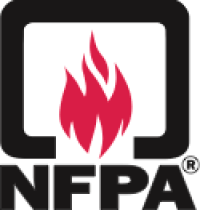February 15, 2013 – The recent tragic fire at Kiss nightclub in Santa Maria, Brazil is reminiscent of The Station nightclub fire in Rhode Island in 2003. As the 10th anniversary of The Station fire is nearing, the National Fire Protection Association (NFPA) is offering expanded resources on its webpage on nightclub and assembly fires. The Kiss nightclub fire is ranked third on NFPA’s list of the deadliest nightclub fires in the world; The Station is ranked tenth.
“These incidents, and the deaths they caused, clearly could have been avoided if recommended safety requirements had been followed and regulations enforced,” said NFPA President James M. Shannon. “NFPA has a history rooted in modifying its codes and standards based on lessons learned from catastrophic events, including The Station fire, and to see so many lives lost in the Kiss nightclub fire a decade later, reportedly due to obvious fire and life safety lapses, is unacceptable. We need to learn from history and not repeat it.”
On February 20, 2003, the band Great White was playing at a West Warwick, R.I. nightclub called The Station. When the band released a pyrotechnic sparks display, highly flammable acoustic foam panels in the walls of the club caught fire. The club was beyond capacity, with 462 people in attendance when it was only licensed for 404. One hundred lost their lives.
News coverage of events that occurred at the Kiss nightclub in Santa Maria, Brazil on January 27, describe the following: While performing, the band Gurizada Fandangueira ignited an outdoor pyrotechnic device, which then ignited flammable acoustic foam in the ceiling. The flames spread rapidly throughout the club. The club was overcrowded and club-goers quickly swamped the front door – reportedly the only usable exit – trapping many inside. As of February 5, there have been 238 recorded deaths.
Both of these nightclubs encountered parallel fire hazards:
- They were overcrowded
- They had inadequate exits
- Pyrotechnics were used indoors
- There were flammable interior finish materials
- Neither building had sprinklers installed.
For more information, visit www.nfpa.org/nightclub.
About the National Fire Protection Association (NFPA)
NFPA is a worldwide leader in fire, electrical, building, and life safety. The mission of the international nonprofit organization founded in 1896 is to reduce the worldwide burden of fire and other hazards on the quality of life by providing and advocating consensus codes and standards, research, training, and education. NFPA develops more than 300 codes and standards to minimize the possibility and effects of fire and other hazards. All NFPA codes and standards can be viewed at no cost at www.nfpa.org/freeaccess.












